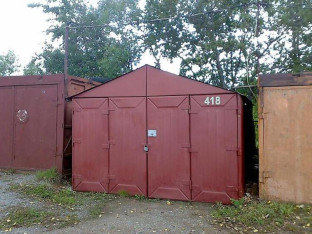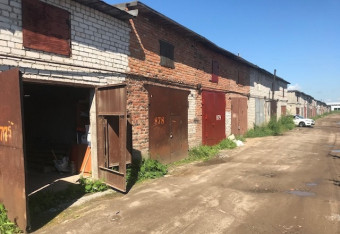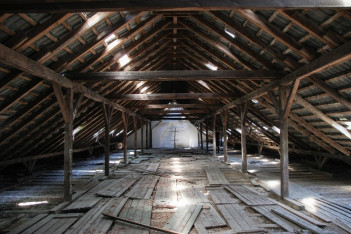Basement privatisation: legal stages, conditions and the role of a lawyer
Privatisation of a basement is the process of registering ownership rights to a part of a building that was previously owned by the municipality or the state. Most often, such basements are used as utility rooms, warehouses or commercial facilities. In order to legally own such property, it is necessary to go through the privatisation procedure provided for by law.
Privatisation allows the owner to obtain official confirmation of the right to use the property, carry out reconstruction, and conclude lease or sale agreements. In large cities, where every square metre is expensive, basements are often used as offices, workshops or shops. However, without legal registration, any use of such premises is potentially illegal.
Legal stages of basement privatisation
The basement privatisation procedure is not quick, but with proper preparation and compliance with the requirements, it can be completed without excessive difficulty. Each stage has its own characteristics, which must be taken into account before submitting documents.
- Submit an application to the local government authority stating your intention to privatise the basement.
- Obtain a technical passport for the premises.
- Conduct an assessment of the privatisation object (mandatory for commercial use).
- Collect a package of documents (documents on the right of use, consent of the co-owners of the building, etc.).
- Consideration of the issue by the local government and decision-making.
- Registering ownership rights in the State Register of Property Rights.
Each stage is accompanied by certain documentation, approvals, and checks. Errors or inaccuracies can delay the consideration of the case for months, so it is important to approach each step responsibly.
Conditions under which a basement cannot be privatised
Not every basement can be privatised. The law provides for a number of restrictions that make it impossible to transfer such premises to private ownership. Below are the main exceptions:

The basement is part of the common property of an apartment building — for example, when the basement houses networks or communications.

Technical purpose of the premises — if the basement is used for ventilation, pumping or other engineering systems.

The premises are part of a civil defence shelter (bomb shelter) — such objects are not subject to privatisation.

Lack of right of use or documents confirming the grounds for use — in this case, there is no legal right to initiate privatisation.
Legislative restrictions are established to preserve the safe infrastructure of the building and protect the interests of all its residents. If there are doubts about the possibility of privatisation, it is worth conducting a legal examination of the object.
How to privatise independently
Despite the complexity of the procedure, some owners of basement premises try to go through it on their own. To do this, you need to familiarise yourself with the legislation in detail and carefully prepare the documents. The general procedure is as follows:
- Submit an application for the intention to privatise the premises to the local government.
- Order a technical passport from the BTI.
- Conduct an appraisal of the premises (especially if it will be used for business purposes).
- Provide documents on the right to use the premises, the consent of the co-owners (if the building is a multi-apartment building).
- Conclude a purchase and sale agreement (if the basement is transferred for a fee).
- Register the ownership right in the State Register.
Submitting documents yourself saves money, but requires a significant amount of time and attention. It is important to check the relevance of the regulatory framework, as changes to the procedure may be made every year.
Why you should consult a lawyer
Privatisation of a basement is not just a formality, but a full-fledged legal procedure. Even minor errors in documents or violations of the procedure can lead to rejection or delay of the process. Legal assistance provides:
- Proper preparation of applications and documents.
- Communication with local authorities and the BTI.
- Legal examination of the premises for privatisation.
- Representation in case of refusal or litigation.
A lawyer will also help you draw up all notarial documents, carry out a preliminary risk assessment and monitor the compliance of all stages with the requirements of current legislation. This significantly increases the chances of a positive decision by the authorities.
Frequently asked questions about basement privatisation
Question
Can a basement be privatised if it has been rented for more than 10 years?
Answer
Yes, provided that there are supporting documents for long-term use and the premises are not part of the common property.
Question
How long does the basement privatisation process take?
Answer
On average, from 1 to 3 months, depending on the speed of the authorities and the completeness of the package of documents.
Question
Is the consent of the residents of the building required?
Answer
Yes, if the premises are part of a multi-apartment building, the consent of the co-owners is a prerequisite.
Question
What is the cost of basement privatisation services through a lawyer?
Answer
The price depends on the complexity of the situation, the condition of the documents, and the region. On average, it ranges from 8,000 to 15,000 UAH.
ConclusionPrivatisation of a basement is a real way to formalise ownership of valuable premises that can be used for both personal and business purposes. However, this process requires attention, legal preparation and patience. To avoid unpleasant surprises, it is better to use the legal support of the Consultant service, which has experience in the field of real estate and will help you go through the procedure from start to finish, right up to the registration of ownership rights.




































